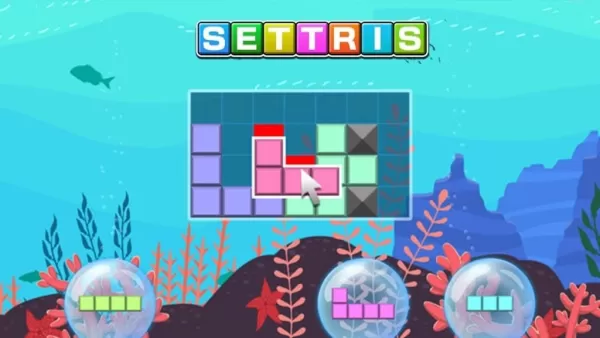Ridley Scott's Lost Dune: Unveiling a 40-Year-Old Script
This week marks four decades since David Lynch's Dune premiered. While initially a box office flop, it's cultivated a devoted cult following. This stands in stark contrast to Denis Villeneuve's recent big-screen adaptation of Frank Herbert's epic novel. Ridley Scott, initially attached to direct, departed before Lynch took the helm. Details of Scott's version remained scarce...until now.
Thanks to T.D. Nguyen, a 133-page October 1980 draft of Scott's abandoned Dune, penned by Rudy Wurlitzer, surfaced from the Coleman Luck archives at Wheaton College. This draft, intended as part one of a two-part epic, reveals a significantly different interpretation of Herbert's work.
Frank Herbert's initial screenplay was dense and un-cinematic. Scott, after engaging Wurlitzer, opted for a complete rewrite. While Scott utilized a few scenes from Herbert's draft, Wurlitzer's script offers a unique perspective, described by Wurlitzer himself as "rarefied," injecting "a somewhat different sensibility."
Numerous factors contributed to the project's collapse: the death of Scott's brother, his aversion to filming in Mexico (De Laurentiis's demand), a ballooning budget exceeding $50 million, and the burgeoning Blade Runner project. However, a crucial factor, as Universal executive Thom Mount noted, was the script's lack of universal acclaim.
Was Wurlitzer's adaptation a cinematic failure, or simply too dark, violent, and politically charged for a mainstream release? A detailed analysis of the script allows readers to form their own conclusions. While Wurlitzer and Scott declined to comment, the script itself speaks volumes.
A Darker Paul Atreides
The script opens with a dream sequence depicting apocalyptic warfare, foreshadowing Paul's destiny. Scott's signature visual density is evident in descriptions like "birds and insects become a whirling hysteria of motion." This Paul Atreides is not Timothée Chalamet's portrayal; he's a 7-year-old, already undergoing trials of will, showcasing a "savage innocence." This Paul is more assertive, actively seizing control, a stark contrast to Lynch's more vulnerable depiction. The script even features a flash-forward to a 21-year-old Paul, a master swordsman.
The Emperor's Demise: A Pivotal Twist
A key departure from the source material is the Emperor's death, revealed dramatically during a rainstorm outside Castle Caladan. This event serves as the catalyst for the ensuing conflict. The script depicts the Emperor's funeral in a mystical setting, where the deceased Emperor designates Duke Leto Atreides as Arrakis's new ruler. This sets the stage for the confrontation with Baron Harkonnen, who proposes dividing Arrakis's spice production—a proposal the Duke rejects. A striking similarity to Lynch's Dune appears here: the Baron's iconic line, "He who controls the spice controls the universe," is almost verbatim in Wurlitzer's script.
The Guild Navigator and Arrakis
The script depicts the Guild Navigator as a bizarre, spice-mutated creature, foreshadowing elements from later books. The Atreides family's arrival on Arrakis is presented with a medieval aesthetic, emphasizing swords, feudal customs, and class disparity. The ecological impact of spice mining is highlighted through various scenes, including a stark depiction of the planet's ravaged landscape. The script also features a memorable bar fight in Arakeen, where Paul and Duncan encounter Stilgar, the Fremen leader.
Intense Desert Escape and Fremen Encounter
Paul and Jessica's escape into the desert is fraught with peril. Their flight is intense, culminating in a crash-landing. The script vividly portrays their struggle for survival, their encounter with the Fremen, and Paul's duel with Jamis. Unlike the book and Lynch's film, Jessica, not Chani, guides Paul in combat. The script also features a unique Water of Life ceremony, showcasing a blend of mystical and erotic elements. The script concludes with Paul and Jessica's acceptance into the Fremen tribe, setting the stage for the events to come.
A Different Paul, a Different Dune
Wurlitzer's script presents a more ruthless and ambitious Paul, a far cry from the reluctant hero portrayed in other adaptations. The script's focus on ecological devastation and political intrigue provides a unique perspective on Herbert's work. The script's dark tone and violent scenes differ significantly from Lynch's and Villeneuve's interpretations.
The Legacy of a Lost Vision
Scott's lost Dune offers a fascinating glimpse into an alternative adaptation. While it may not have satisfied all fans, its unique approach to the source material and its focus on ecological and political themes offer a compelling counterpoint to existing versions. The script's bold choices and its distinct visual style reflect Scott's signature cinematic vision. Perhaps, in the future, another filmmaker will revisit this lost vision, offering a new perspective on Herbert's enduring masterpiece.


















